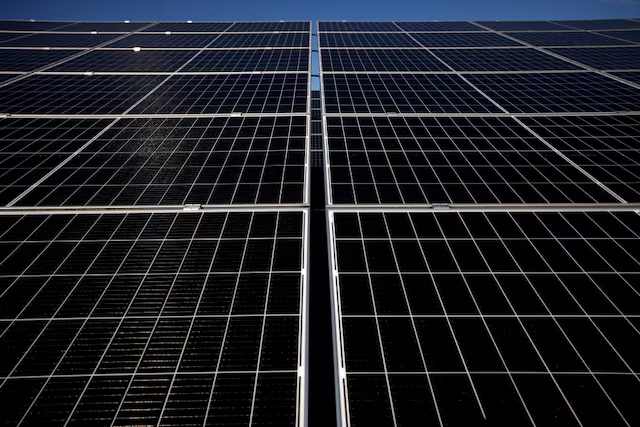Philip Matthias spent months persuading his father to install solar panels on their company’s roof in Thuringia, eastern Germany. Initially skeptical about the 2.3-million-euro ($2.5 million) investment, Matthias’ father ultimately decided to nearly double the project capacity, opting to install photovoltaic (PV) modules that could power approximately 900 households in addition to the factory. “The PV systems amortize after about 7-1/2 years. The manufacturer gives a guarantee of 20 years. That means this is an extremely lucrative investment,” Matthias told Reuters.
Since the Ukraine war and the subsequent drop in Russian fossil fuel exports to Germany, Berlin has enacted laws to accelerate solar power expansion. This initiative is part of Germany’s plan to source 80% of its energy from renewables by 2030. Aided by a feed-in tariff that guarantees prices to renewable energy producers and reduced solar panel costs, German companies are increasingly turning to solar to mitigate high energy costs.
Despite Germany having Europe’s largest solar and wind power capacity, small and medium-sized companies have yet to benefit from lower electricity prices due to high grid fees and taxes. By generating their own solar power, these companies can avoid these costs. In 2023, companies consumed around 69% of Germany’s national electricity, according to the BDEW utilities association.
“As electricity prices in Germany show no signs of decreasing as previously anticipated, companies are increasingly recognizing the economic viability of installing solar panels,” said Marie-Theres Husken, an energy expert for the BVMW association for small- and medium-sized businesses. Newly installed photovoltaic capacity on business rooftops rose by 81% year-on-year in the first four months of the year, surpassing the 1% growth in the residential sector, data from the BSW solar power association shows.
A May survey by pollster YouGov indicated that over half of German companies with suitable roofs planned to install solar power systems within the next three years. BVMW forecasts nearly all manufacturing companies in Germany will use solar energy by 2030. In response to this demand, Germany’s largest residential solar power developer, Enpal, announced in April its expansion into the commercial sector.
An April study by the Freiburg-based Institute for Applied Ecology suggested the potential to install up to 287 gigawatts (GW) of solar capacity along German roads, railways, parking lots, and industrial areas, exceeding Berlin’s 2030 target of 215 GW. This could significantly reduce reliance on agricultural land, where permitting and planning approvals can take up to a decade.
A global drop in solar panel prices since last year has encouraged companies to embrace solar energy. “The market is overrun with cheap but good panels from China. That means the system we are building now is about 20% cheaper than a year ago,” Matthias said.
A legislative package passed in April, easing regulations and increasing subsidies for large rooftop systems, along with a pending tax investment reform for real estate funds operating rooftop solar panels, is expected to further drive demand. State feed-in subsidies for large-scale rooftop PV projects, introduced in 2021, have also boosted this trend. The last tender for subsidized projects in February saw a 107% year-on-year increase in the number of offers, according to the federal grid network agency.
A feed-in tariff of 9.3 euros cents per kilowatt-hour, higher than Tridelta’s power purchasing price, makes it cheaper for the company to sell future generated electricity to the grid and buy it back. “There’s a high correlation between the feed-in tariffs and the build-up of solar PV rooftop projects,” said Hugo Willink, Executive Director at solar roofs developer Sunrock, which won an order from Mercedes Benz in May to build a 23-megawatt solar project on the carmaker’s factory roofs. Sunrock sees Germany as its core market for the coming year.
READ MORE:
